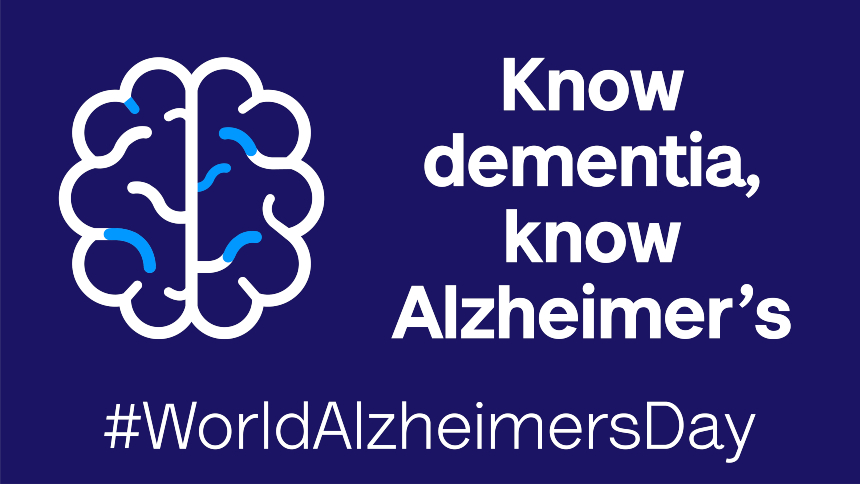
Everyone forgets things from time to time, but sometimes it can be more serious. Globally, dementia is one of the biggest challenges we face.
World Alzheimer’s Month, which also covers all other forms of dementia as well as Alzheimer’s, is recognised annually in September, and this year Warwickshire County Council wants to help people learn more about dementia, how to spot the early signs and what support is available for those diagnosed with dementia.
Early signs of dementia can include:
- memory loss, such as remembering past events much more easily than recent ones
- problems thinking or reasoning, or finding it hard to follow conversations or TV programmes
- feeling anxious, depressed or angry about memory loss, or feeling confused, even when in a familiar environment
Many physical and mental factors can impact our memories, including stress, anxiety, depression, infections, certain physical illnesses and thyroid deficiencies. However, if your memory is getting noticeably worse, or if it is starting to affect your everyday life, please book a GP appointment to get an assessment. Almost half of Warwickshire residents with dementia are undiagnosed, meaning they cannot access additional support and treatment that would be available to them.
Councillor Margaret Bell, portfolio holder for Adult Social Care and Health at Warwickshire County Council said:
“During World Alzheimer’s Month, we encourage anyone who is worried about their memory to visit their GP. We know that many people may be afraid of a dementia diagnosis, but an early diagnosis can have many benefits. You will have access to specialist support and treatment that could help slow down the symptoms of dementia, while helping you make informed plans for your future.”
There are two key routes to finding out about dementia support services in your local area:
- Dementia Connect in Warwickshire service - access to support from a Dementia Advisor who can provide a range of support as well as information on all the local services in your area – by phone on 0333 150 3456 or by email.
- Warwickshire’s Living Well with Dementia website – a resource with a range of information about dementia, a map of services at district and borough level with details of all the services in the area.
Debbie, a Warwickshire resident, shared her experiences when Dementia Connect supported her father when he was diagnosed with dementia, as well as supporting Debbie and her mother. Debbie said:
“Receiving support over that period of time really helped both my mum and dad come to terms with what was facing them, understanding about the condition and receiving information in short chunks rather than all in one go. The Dementia Advisor put everything into plain English, what was happening and my dad was able to really understand more about what was happening to him.”
Their Dementia Advisor visited them at home to go through the information, shared ideas for helping maintain her father’s cognitive stimulation, and provided links to helpful resources and organisations. You can watch Debbie’s video here.
Worrying about memory issues, receiving a dementia diagnosis or being a carer for a friend or family member with dementia can affect your mental health. This September, we are holding Be Well, an online weeklong conference for anyone involved professionally in mental wellbeing.
The week includes many sessions that could be useful to those working with dementia patients and their families, including many of the sessions on Wednesday 14 September, where the main topic is “Be Connected”. Sessions that day include:
- 10am – “Loneliness and social isolation: what we can do” – what is loneliness and social isolation, who is at risk and what can be done to help
- 1pm – “Connecting with carers” – why carers are more likely to struggle with their mental wellbeing, and what interventions make a positive difference
- 3.30pm – “Engaging everyone” – how can we create more diverse and inclusive programmes of support, that will reach those most likely to suffer from poor mental wellbeing and who find it more difficult to access services
You can find out more about the Be Well conference and register to attend on the event website.
For more information if you have worries about your memory, visit the Alzheimer’s Society website.
For tips and advice about healthy ageing and tips to keep yourself mentally alert, visit our Brain Training webpage.